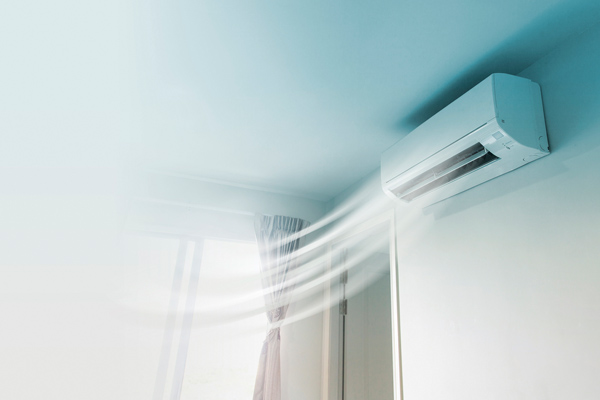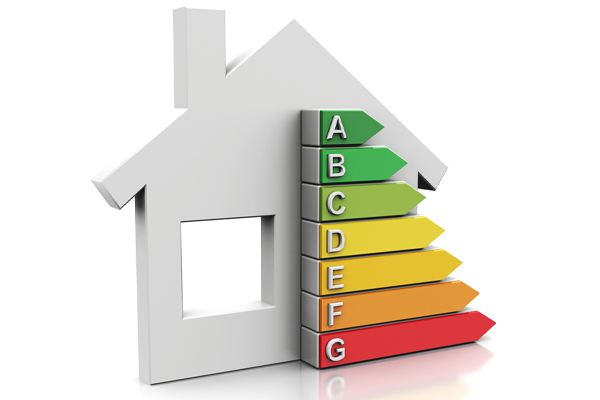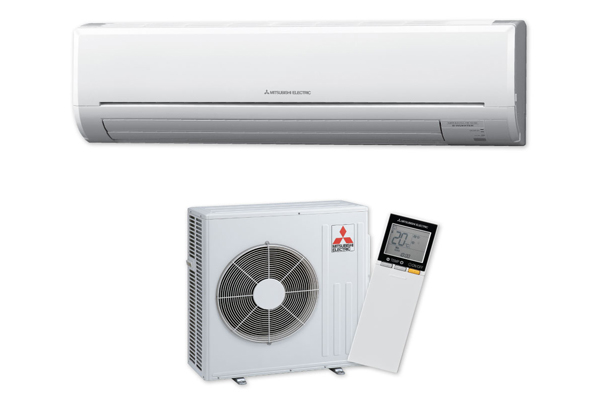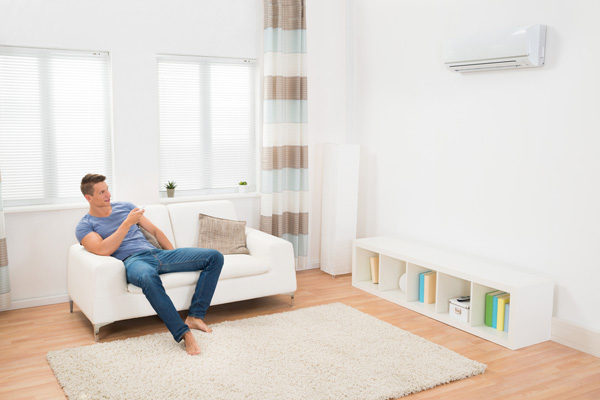
Mini-split systems are increasingly becoming more popular among homeowners due to the many features they offer that traditional HVAC systems do not have. For one, mini-split systems do not require ductwork. Instead, they rely on indoor and outdoor air handlers connected through refrigerant lines to distribute cooled or heated air throughout your home.
Ductless systems come in two main types: ductless heat pumps and ductless air conditioners. The differences may seem obvious, but one may be the better choice over the other depending on your needs and preferences, along with the size and layout of your home.
Advantages Of Ductless HVAC Systems
Ductless systems offer several benefits, such as:
Ease Of Ductless Installation
Ask any HVAC technician, and they will tell you that installing a ductless system is far easier over a conventional HVAC system. In fact, the most labor-intensive work in the installation would probably be drilling a three-inch hole through the wall to run a conduit through. This conduit will connect the outdoor and indoor units. The refrigerant is already fitted into the system, which means this installation step is already eliminated, saving technicians time. The whole process of installation usually takes only several hours and could even be completed within a single day. That way, your schedule for the day will remain intact.
Ductless HVAC Systems Have High SEER & HSPF Ratings
The SEER and HSPF rating measures the efficiency of ductless HVAC systems. By far, ductless units have shown a higher SEER and HSPF rating than conventional systems, including heat pumps and central cooling systems. Ductless units are equipped with improved technology, including inverter technology, that allows the system to run at low speeds.
Conventional systems repeatedly turn on and off, a process that uses plenty of energy. When an HVAC system re-starts, it consumes more energy when it turns on. A ductless system that has inverter-driven technology, on the other hand, runs at a consistent speed until the preferred temperature is reached. When this happens, the system runs at a smaller percentage of the full speed. However, it still continues running and providing a consistent temperature without wasting energy. As such, the system remains durable while maintaining the comfort level of your home.

Ductless Heating & Cooling Offers Zoned Home Comfort
When it comes to customizing your heating and cooling system, nothing beats a ductless mini-split. With this system, you can create zones. These zones will group adjacent spaces together so you can adjust the temperatures in these spaces without affecting the temperatures in other spaces. For example, you can keep the bedroom areas warmer but keep the living room area cooler. With zoned systems, you only require a single outside unit to connect to multiple indoor units.
Safety
Ductless mini-splits offer a reliable and safe system to keep your home comfortable. Unlike other types of heating systems, mini-splits do not require combustible fuel to work. As such, there is no risk of dangerous gas buildup or leaks (such as carbon monoxide).
Ductless heat pumps also do not carry the risks and disadvantages of ventless heaters and garage heaters. Ventless heaters come with oxygen sensors that turn the heaters off if the level of oxygen dips at a certain point. Should this sensor fail, the heater will keep running, which could increase the likelihood that the unit will release toxic gases indoors. This is not an issue with ductless systems at all.
Ductless Heat Pump And Ductless Air Conditioners: What’s The Difference?
The most crucial difference between the two types of ductless systems is function. The ductless heat pump provides both cooling and heating while the ductless air conditioner only cools your home. If your home requires heat, you will have to install heating equipment.
How Ductless Heat Pumps Work
The heat pump works in the same way an air conditioner does to cool your home. During the cooling cycle, high-pressure liquid refrigerant passes through the expansion valve. When pressure is lowered, the refrigerant evaporates and becomes gas. It then flows via the evaporator coil found within the indoor unit.
The warm indoor air is passed through the coils, it releases heat that is absorbed by the refrigerant. The refrigerant then turns into a gas and evaporates. The coolant, which is now warm, is pushed into the compressor located in the outdoor unit, hence releasing the heat that was just absorbed. What is left is indoor air that is cooler and lower in temperature.
The indoor unit uses high pressure to remove heat from the refrigerant. The air inside the indoor coil brings the heat into the living area. The coolant is then converted into a liquid to repeat the cycle once again.

When Is A Ductless Heat Pump A Good Choice?
If you already have a central heating and cooling system in your home but need a system to supplement what you already have, consider a ductless heat pump. Efficient and cost-effective, a ductless heat pump is one of the best alternatives to a central air system.
Year-Round Comfort
If you are looking for a device that can cool and heat your home, a ductless heat pump can perform double duty. In summer, you are assured of cool air indoors and in winter, the heat pump can provide heat. It meets your requirements for both heating and cooling, using just one system.
Heat Pumps In Extreme Winter Conditions
Many areas require the use of a heat pump due to weather conditions. However, it also has limitations. Since the heat pump draws in outdoor heat to keep the home warm, it may not work properly if outdoor temperatures are too low.
There are, however, heat pump models that can provide comfortable heat even if outdoor temperatures go as low as -15° Fahrenheit. The refrigerant in the heat pump can also absorb heat from outdoors. Since it is at low pressure, it needs heat to expand. Keep in mind, however, that most heat pumps may not provide sufficient heat in very cold temperatures regardless of their capacity.
To determine if a heat pump model can properly heat your home, check its heating capacity prior to purchase. While heat pumps are versatile, they also have limitations. In fact, most heat pump models may not work very well if outside temperatures fall below 5° Fahrenheit. To keep a comfortable indoor temperature, you would need to have a backup source of heat, such as a furnace or a boiler.

When Are Ductless Heat Pumps Used?
In regions that do not experience extreme weather in winter, ductless heat pumps remain very popular. Some of their most common applications include:
- Outbuildings And Additions: Outbuildings such as garages and sheds, as well as added structures, can use a ductless mini-split to keep warm. A ductless mini-split extends the capacity of an existing HVAC system. It is also the best option if adding ductwork to your home is impractical.
- Older Structures: Older houses and buildings often do not have the facility to accommodate central air conditioning. The structure may not have existing ductwork, or space may be too limited for expansion.
- Large Homes And Structures: If your home is large, you may have more rooms or enclosed areas. Some of these rooms may not always be occupied. By having a mini-split installed, you can control the setting on the occupied rooms and turn off the supply of air in rooms that are unoccupied to save on energy costs.
- An Increase In Energy-Efficiency: A home that requires replacement of an older HVAC system will benefit well from a ductless mini-split system. Older systems consume more energy and are less efficient. You could also install a heat pump for areas in the home that are adjacent to rooms with ductwork that is exposed to extreme temperatures. Enclosed spaces such as garages, for example, emit heat or cold to the room above. If you have rooms on top of sheds or garages, the best heating and cooling solution would be a heat pump.
When Is A Ductless Air Conditioner A Good Choice?
You probably do not need a heat pump if you live in an area that does not require a heat source in winter or if you only want to supplement your air conditioning system to manage heat and humidity. A ductless air conditioner would be a better choice.
A ductless air conditioner is designed to supply cool air to different zones in the home. It does not heat the space at all. If your region has a tropical or arid climate where outdoor temperatures do not go below 60° Fahrenheit, a ductless cooling system is an excellent choice. It can also be installed in individual rooms to maintain a cool temperature, such as a bedroom or a sunroom.
Check Out One Of Our Ductless Installation Projects
Mitsubishi Mini-Split Ductless Cooling & Heating System Installation Roebling, New Jersey
Conclusion
Choosing a heat pump to provide heating and cooling for your home will allow you to enjoy an energy-efficient and safe temperature control system. It offers dual functionality for year-round comfort and makes a great investment that will give you energy-saving costs over the long term.
If you want to find out if a heat pump is the best solution for your home, talk to a qualified HVAC technician. They can offer you expert advice on identifying the features and functions that will suit your needs. Find out about your most efficient heating and cooling solutions today by contacting PFO Heating & Air Conditioning.
Call PFO Heating & Air Conditioning To Learn More About Ductless HVAC Systems
 For all your HVAC system needs, call PFO Heating & Air Conditioning today. Our technicians are all NATE-certified, and they have a great deal of experience. They’ll also determine what your home comfort needs are and determine the best and most affordable solutions to meet them.
For all your HVAC system needs, call PFO Heating & Air Conditioning today. Our technicians are all NATE-certified, and they have a great deal of experience. They’ll also determine what your home comfort needs are and determine the best and most affordable solutions to meet them.
As a full-service HVAC company, PFO Heating & Air Conditioning offers an array of HVAC services. This includes heating and cooling installations, tuneups, repairs, and much more.
Click here to contact us now or call us at (800) 253-9001 to find out more!
The post The Differences Between Ductless Heat Pumps And Ductless Air Conditioners appeared first on PFO Heating & Air Conditioning.
from PFO Heating & Air Conditioning https://www.princetonfuel.com/blog/ductless-heat-pumps-ductless-air-conditioners/
via IFTTT
No comments:
Post a Comment